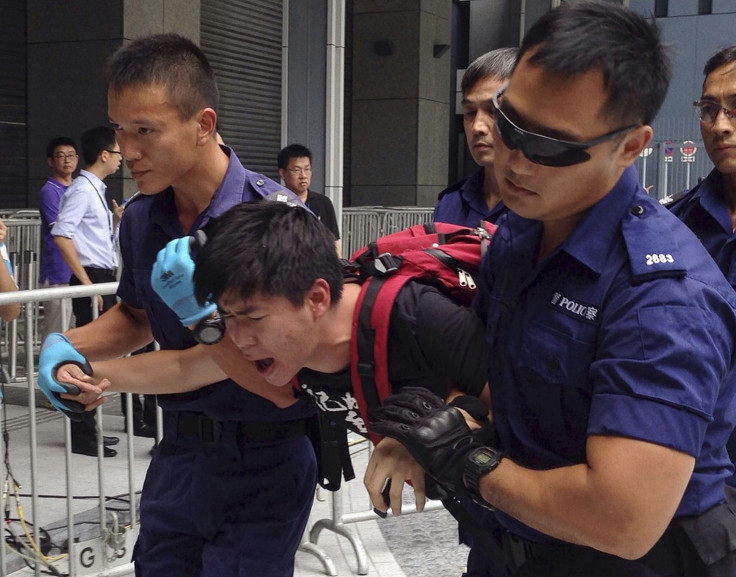Hong Kong Police Arrest Protesters Who Stormed Government Headquarters

Hong Kong police Saturday arrested several protesters who had occupied the city's government headquarters, in protesting against China’s decision to place restrictions on the process for electing the city's leader. The arrests followed scuffles between the police and protesters Friday night, in which at least 29 people were injured, the Associated Press, or AP, reported, citing the police officials.
Police officials tried to disperse the 150 protesters, who had forced their way into the government compound, using pepper spray late Friday. Hong Kong’s secretary or Security Lai Tung-kwok said that police had given enough warning to protesters before taking action against them, according to the AP.
The protests began in August, when Beijing decided that candidates for the 2017 election for the quasi-autonomous city's chief executive would have to be approved by a nominating committee, widely seen as being stacked with supporters of the ruling Communist Party government.
"I paid my highest respect to every soldier who defends till the last moment... civil disobedience, it continues to happen," Lester Shum, a student leader said, on his Facebook page, according to Reuters.
Representatives for Occupy Central with Love and Peace, or OCLP, a pro-democracy protest in Hong Kong, released a statement Saturday, condemning the police action against the protesters.
“OCLP urges the government to respect public opinion by letting Hong Kong people have a universal and equal suffrage. The government must not suppress the students who want to regain access to Civic Square by peaceful means,” the group said, adding: “OCLP has received a lot of complaints that the police applied pepper spray to the peaceful protestors without any warning. We believe the police employed unnecessary force in suppressing the student protest this morning. We strongly condemn such action which not only violates the police code of conduct but also tramples upon people's freedom of expression.”
Since the UK handed Hong Kong back to Chinese rule in 1997, the city operates a “one country, two systems” arrangement with China, under which the region has a high degree of autonomy, greater freedom of speech and politIcal freedom than mainland China, including the right to protest.
“I want to tell C.Y. Leung (the current Chief Executive of Hong Kong) and Xi Jinping that the mission of fighting for universal suffrage does not rest upon the young people, it is everyone's responsibility," Wong, one of the leaders in the protest said, according to Reuters, adding: “I don't want the fight for democracy to be passed down to the next generation. This is our responsibility."
© Copyright IBTimes 2024. All rights reserved.






















